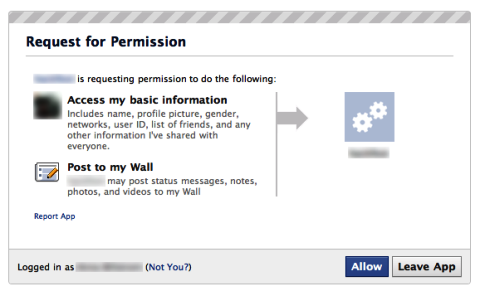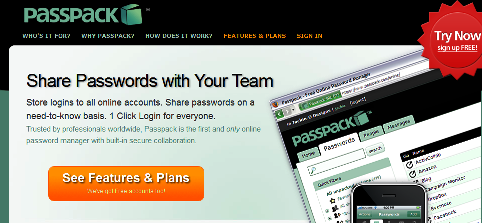 Is your Facebook page secure? With such a critical marketing tool, are you keeping your virtual house locked and safe?
Is your Facebook page secure? With such a critical marketing tool, are you keeping your virtual house locked and safe?
With so much focus on managing the wall and running promotions, Facebook page security is often overlooked.
The good news is that Facebook's security is actually quite effective. SSL encryption greatly reduces the chance of a page being hacked by a malicious script to take over the page or bypass its content.
However, while Facebook's security from external threats is great, there are still threats that every page admin needs to be aware of.
So here are five ways to keep your page safe and secure.
#1: Moderate your page's admins
Many companies collect page admins over time because they fail to remove old ones. Add up the social media managers, graphic artists, web designers and even interns, and pages can have dozens of admins.
However, administrative privileges to your business Facebook page should only be granted to a handful of people and only for as long as necessary.

I once did some design work for a company's Facebook page, so I was given admin privileges. I was shocked to find they had nearly 40 admins, most of them student interns who were only with the company for a semester.
Years later, these former interns still had the same permissions as they did during their internships. Any of these people could, at any time, post new content to the page, remove content and change admin privileges for others.
Because admin privileges give an individual so much power over a company's image and online presence, manage your admins as closely as possible.
It's a best practice for companies to write Facebook admin rules into their HR policy: If a person is no longer involved in a Facebook project, their admin privileges need to be removed immediately, and whenever an admin leaves the company, their admin privileges need to be removed immediately.
#2: Be App-rehensive
Do research before you use a third-party application on your page. You need to know what information the app accesses and make sure the developing company is as committed to security as you are, because if they get hacked, your information could be compromised.
Any upstanding app will use SSL encryption, segregated databases, cloud-based redundancy, expiring passwords and expiring data purges, so look for these precautions from your third-party apps.
You also need to make sure the app doesn't ask for more information or access than it needs. There are many “spammy” apps that provide limited functionality, but ask for lots of information and access.
Get World-Class Marketing Training — All Year Long!
Are you facing doubt, uncertainty, or overwhelm? The Social Media Marketing Society can help.
Each month, you’ll receive training from trusted marketing experts, covering everything from AI to organic social marketing. When you join, you’ll also get immediate access to:
- A library of 100+ marketing trainings
- A community of like-minded marketers
- Monthly online community meetups
- Relevant news and trends updates
If an app that does nothing more than pose a poll question wants access to your fans, the ability to post to your wall and a dozen other things, look elsewhere. A simple app with simple functionality doesn't need all that permission.

Discover Proven Marketing Strategies and Tips
Want to go even deeper with your marketing? Check out the Social Media Marketing Podcast! Publishing weekly since 2012, the Social Media Marketing Podcast helps you navigate the constantly changing marketing jungle, with expert interviews from marketing pros.
But don’t let the name fool you. This show is about a lot more than just social media marketing. With over 600 episodes and millions of downloads each year, this show has been a trusted source for marketers for well over a decade.

However, if you're using something like a custom tab app, expect it to ask for advanced permissions. But clarify with the developer or the company what they're doing with the information they access, why they need the permissions they're seeking and inquire about the security precautions they take.
#3: Change and protect your password
I can't imagine anyone in this day and age not reading that headline and thinking “well, duh.” Everyone knows they're supposed to change their passwords regularly, and to something that's obscure enough to throw even themselves.
However, there are so many instances of stolen passwords, I'd like to take it a step further: Never use the same password for two different web platforms.
Remember the PlayStation Network debacle from 2011? No matter how careful you are with your passwords, your information can be stolen if a website you use regularly gets hacked. So if that message board you post on or your fantasy sports league's website gets hacked, and you use that same login and password for Facebook, your page could easily be hacked.
It does get tricky managing numerous passwords and changing them frequently, so sign up for a password management program like Passpack to keep things straight.

#4: Moderate the wall
This might not seem like security in the classic sense, but your page needs to be safe for your users; which means you, the admin, need to be active on your page. If you're working for a big brand with thousands of fans but you aren't moderating the wall, opportunistic scammers can take note and post malicious links or content that undermine your brand's image or reputation.
Then your wall fills up with links to help an African prince post bail (he'll repay you several hundred-fold, honest!), get a credit report (just enter your credit card info!) and lose weight fast (just visit this site to… whoops, you've got malware!).
Most Facebook users are savvy enough to recognize a scam, but you don't want your fans to even have to think about clicking a link on your wall. So moderate all posts to your wall and make your page a safe place for your fans to visit.
#5: Take advantage of Facebook's Blocklists
Along the lines of providing a safe haven for your fans, use Facebook's Moderation Blocklists to keep undesirable content off of your wall.
Click on “Edit Page” and then “Manage Permissions” to access and update your list. Simply type in the words you want filtered out and the Moderation Blocklist will screen not just your fans' posts, but comments to posts as well. All blocked content shows up in a spam folder that's visible to you, but not your fans.

While you're at it, try adding some “spammy” keywords that have nothing to do with your brand.
What do you think? Leave your questions and comments in the box below.
Attention Agency Owners, Brand Marketers, and Consultants

Introducing the Marketing Agency Show–our newest podcast designed to explore the struggles of agency marketers.
Join show host and agency owner, Brooke Sellas, as she interviews agency marketers and digs deep into their biggest challenges. Explore topics like navigating rough economic times, leveraging AI, service diversification, client acquisition, and much more.
Just pull up your favorite podcast app, search for Marketing Agency Show and start listening. Or click the button below for more information.

